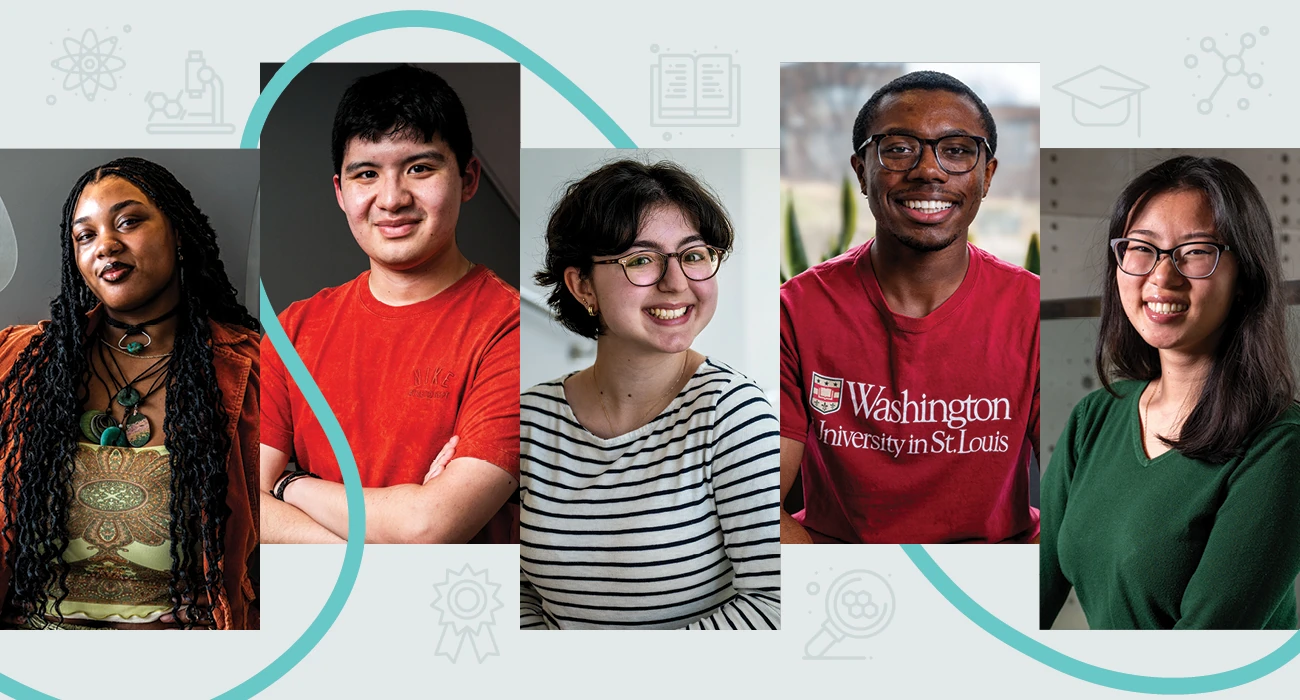A New Course
Family inspiration, on-campus community support essential to their success
First-generation college students may not have the same familial models for higher education as their continuing-generation peers, but these driven students craft their own communities and support systems. By charting a different path for themselves, they break down generational boundaries and discover new futures.
“The overall best thing about first-generation students earning college degrees is that it changes all generations after them,” said Chris Kroeger, associate dean for undergraduate student services and a first-generation college graduate. “Their kids will be in a better position to go to college, and so will their grandkids. Earning a college degree can have a long-term ripple effect.”
First-generation students also enrich the university experience, especially in the STEM fields, said Lisa Gillis-Davis, senior assistant dean, who leads the development of student support initiatives for first-generation undergraduate students in McKelvey Engineering. Research shows that including more underrepresented minority and first-generation students in a class is positively associated with better outcomes for all students in STEM courses.
Around 1,600 of Washington University’s 7,400 full-time undergraduate students in the 2023-24 academic year are limited income or first-generation students. In the McKelvey School of Engineering, the share of first-generation students in the incoming class has increased from roughly 5% to 20% in the past decade.
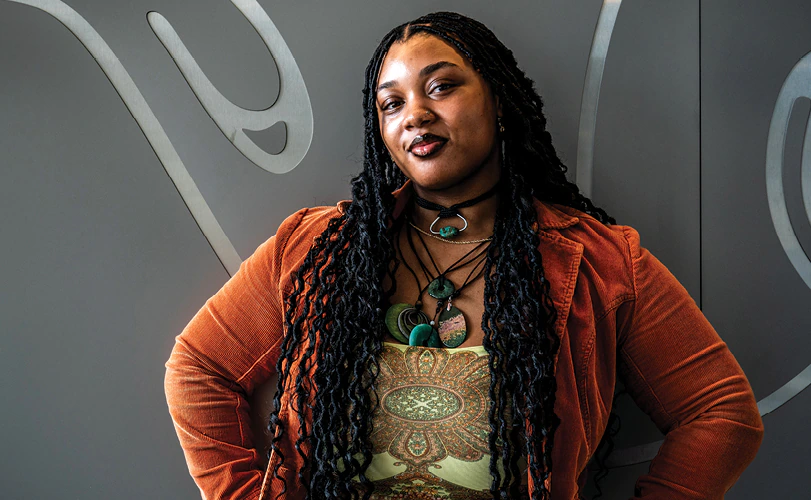
Dominique Bradshaw
Class of 2026
Hometown: St. Louis, Mo.
Majors: Data Science in McKelvey Engineering and African and African American Studies in Arts & Sciences
Activities: National Society of Black Engineers, Code Black, Society of Women Engineers, ColorStack, FSAP, TRIO, photography and clothing design
Future plans: Graduate school to specialize in AI and machine learning; conduct research on understanding and combating bias, particularly racial bias, in algorithms
Why did you choose WashU?
“My dad is from St. Louis, and he always wanted to be a WashU dad. When I was a senior in high school, I toured campus, including McKelvey Hall, where I got to meet with a computer scientist doing research in this beautiful new facility, and I knew I had to come here.
Since I’ve been a student, WashU has been everything I expected it to be and more. I knew I’d have opportunities to grow, but what has exceeded my expectations is the community I’ve found here.”
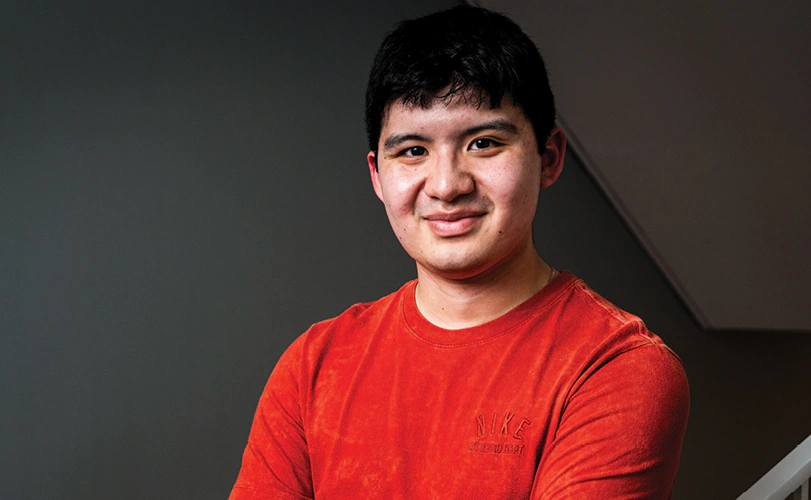
Ariel Nochez
Class of 2026
Hometown: Germantown, Md.
Majors: Data Science in McKelvey Engineering and Linguistics in Arts & Sciences
Minor: Speech and Hearing Sciences in Arts & Sciences
Activities: McKelvey Believes; Unlocked Labs, a nonprofit that teaches basic technology skills to incarcerated and recently released, formerly incarcerated individuals; reading; working and playing with children at the Central Institute for the Deaf; tutoring
Future plans: Joint PhD program in hearing and speech science and continuing research in computational linguistics with goal of becoming an audiologist working on hearing aid devices
What are the keys to your success?
“My first semester at WashU, I didn’t do as well as I wanted, and I struggled in terms of mental health. I could have given up, but my parents taught me the value of hard work, and their example helped me push through and seek out resources. Now I’m doing a lot better both academically and mentally. That ‘never give up’ attitude that I learned at home helped me find support here at WashU through the Student Success Fund, and the Taylor Center for Student Success.”
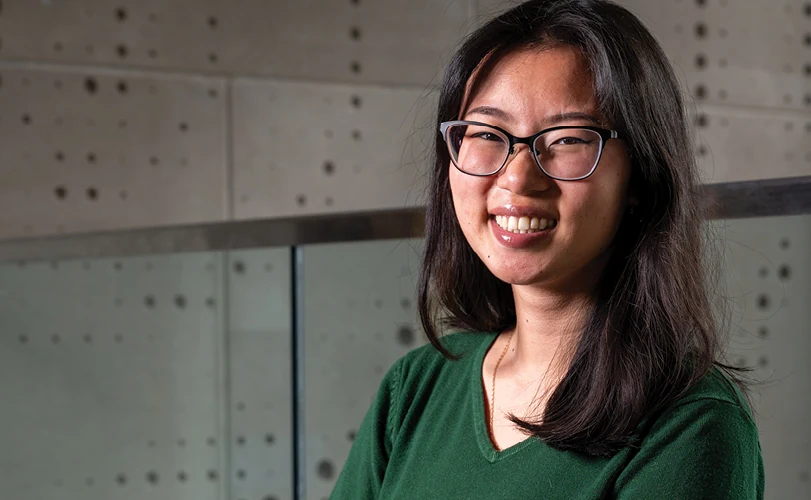
Jenna Nguyen
Class of 2025
Hometown: Oxnard, Calif., and Phoenix, Ariz.
Major: Biomedical Engineering
Minor: Mechanical Engineering
Activities: Researcher in Assistant Professor Nathaniel Huebsch’s lab, working on optimizing growth of micro-heart tissue; public relations chair for Washington University STEM Education Association; and resident adviser in the William Greenleaf Eliot Residential College
Future plans: Complete master’s degree in mechanical engineering in four years alongside bachelor’s degree, then continue on to a PhD or enter industry with a focus on research, development and manufacturing of biomedical devices
Who inspires and motivates you to excel?
“My biggest support and inspiration come from the friends I’ve made at WashU, especially other BME majors, who are going through the same very tough courses I am. I’ve found my people here. Every one of them — my friends and my partner — are so amazing that they inspire me to do better myself. I always try to be a better person and to expand my perspective beyond my identity as a first-generation, low-income student.
Part of that drive also comes from my family. My grandparents escaped Vietnam on their fishing boat with my father and his siblings during the war, so a lot of what I do is motivated to make my parents proud and to be a good example for my little brother, whom I want to have the same opportunities and support I’ve had.”
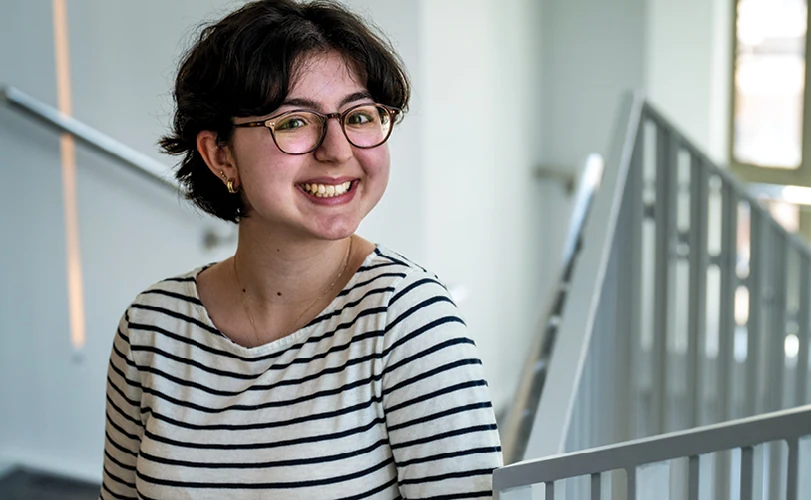
Christina Alexakos
Class of 2025
Hometown: Lincolnshire, Ill.
Major: Chemical Engineering
Minor: Environmental Engineering
Activities: Working at the Women & Engineering Center, tutoring General Chemistry, attending WU Cinema events, reading, drinking matcha lattes, and walking in Forest Park
Future plans: Renewable energy internship this summer with Electric Hydrogen, which will focus on electrolyzers and fuel cells, then continue with a career in renewable energy space
Why did you choose WashU?
“I chose to study chemical engineering here because of WashU’s emphasis on environmental applications. I knew I wanted to pursue a career in sustainability, but I didn’t know what that would be exactly.
After taking classes here with professors like Dan Giammar and Young-Shin Jun, I learned there's a lot you can do with renewable energy. There's a lot you can do with water treatment. This degree will help me do what I want to do in sustainability while being hands on and working on issues that give me a sense of purpose and let me make a difference in the world.”
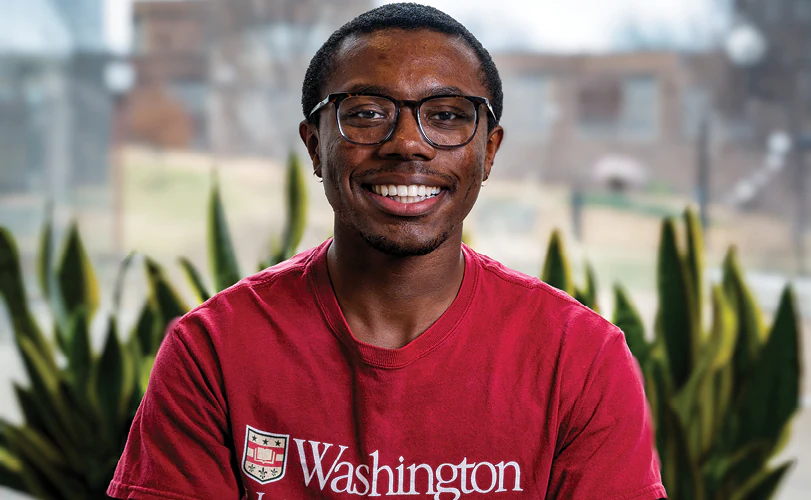
Will Smith Jr.
Class of 2025
Hometown: Memphis, Tenn.
Major: Biomedical Engineering
Activities: Running club; WashU Robotics Club; Books and Basketball, a student-led group that visits local schools weekly to provide tutoring and engage in recreation with students
Future plans: Get a master’s degree at McKelvey, then work in the medical device industry at Abbott, building on a summer internship as a development quality engineer
Who are your role models?
“My mom always pushed me to get a college education. She encouraged me to break generational boundaries, and she gives me the support I need to move forward in stressful times. My mom is a single parent with an incredible work ethic, so that has inspired me to work hard, too.
My mentors have also been really helpful for my intellectual and emotional growth. My scholarship sponsor, Rhonda Germany Ballintyn, helped me get acclimated to WashU and continues to mentor me professionally. Professor Patricia Widder and Dr. Patrícia Pereira have helped me feel included and succeed in a really difficult major.”

